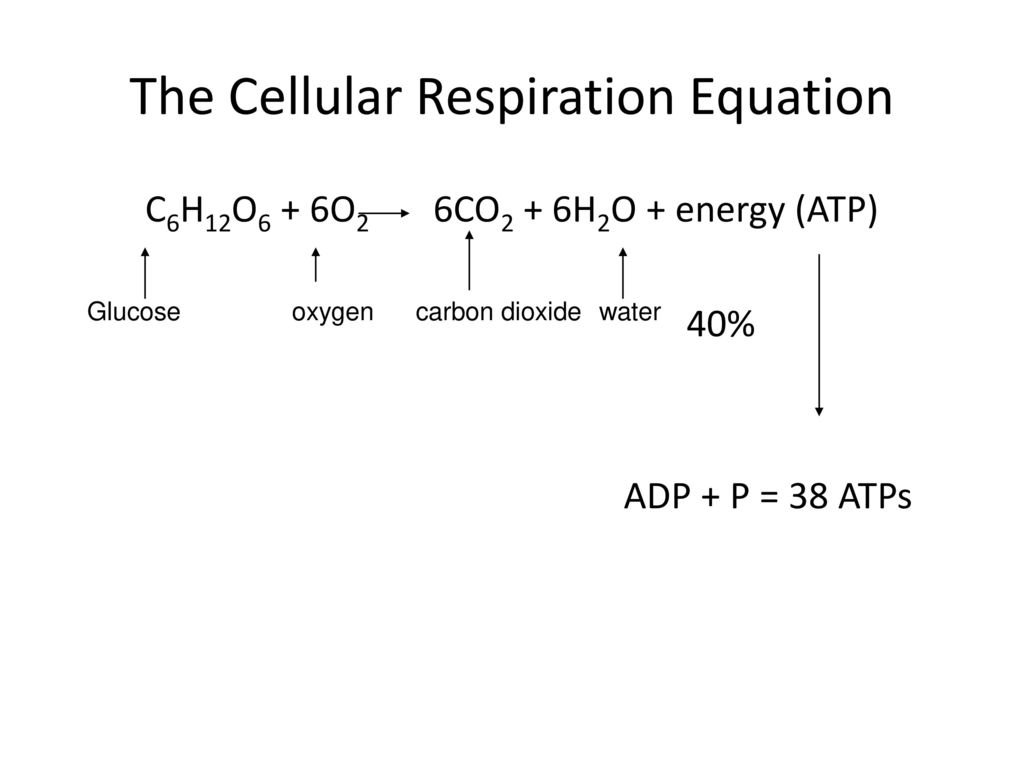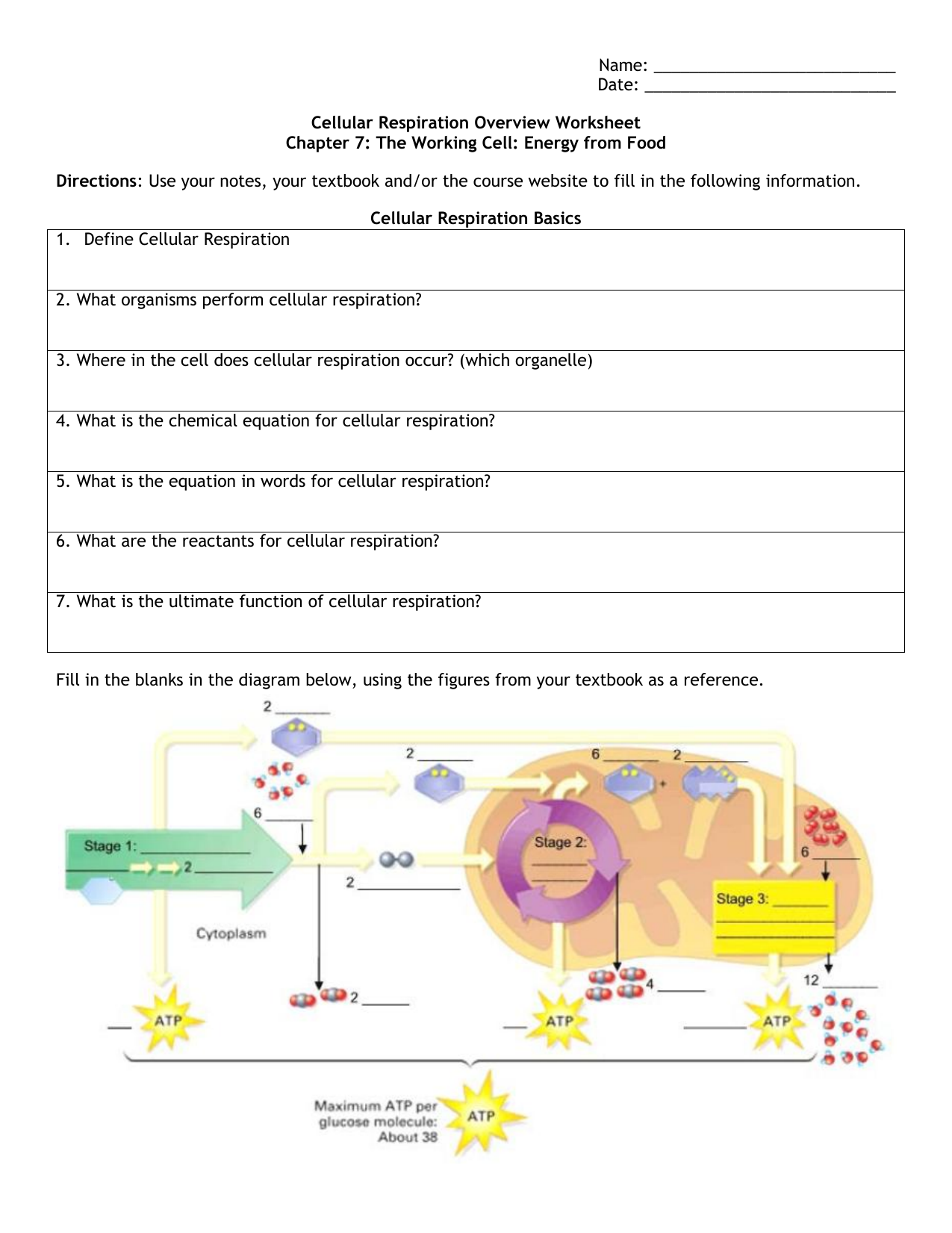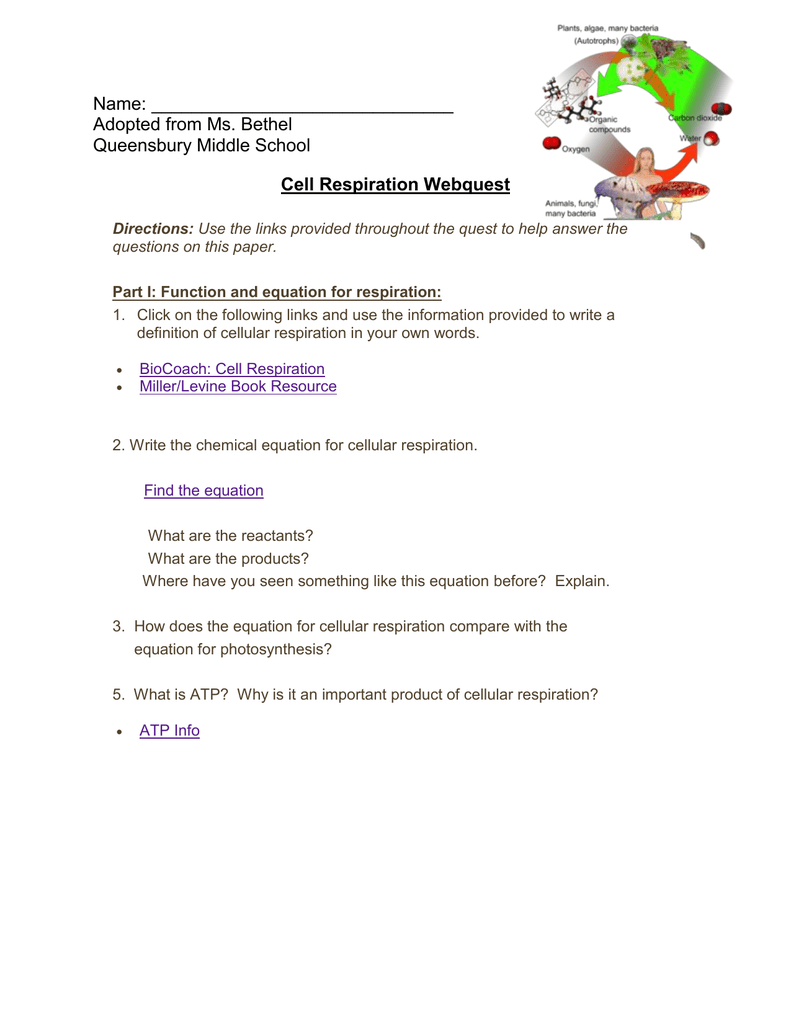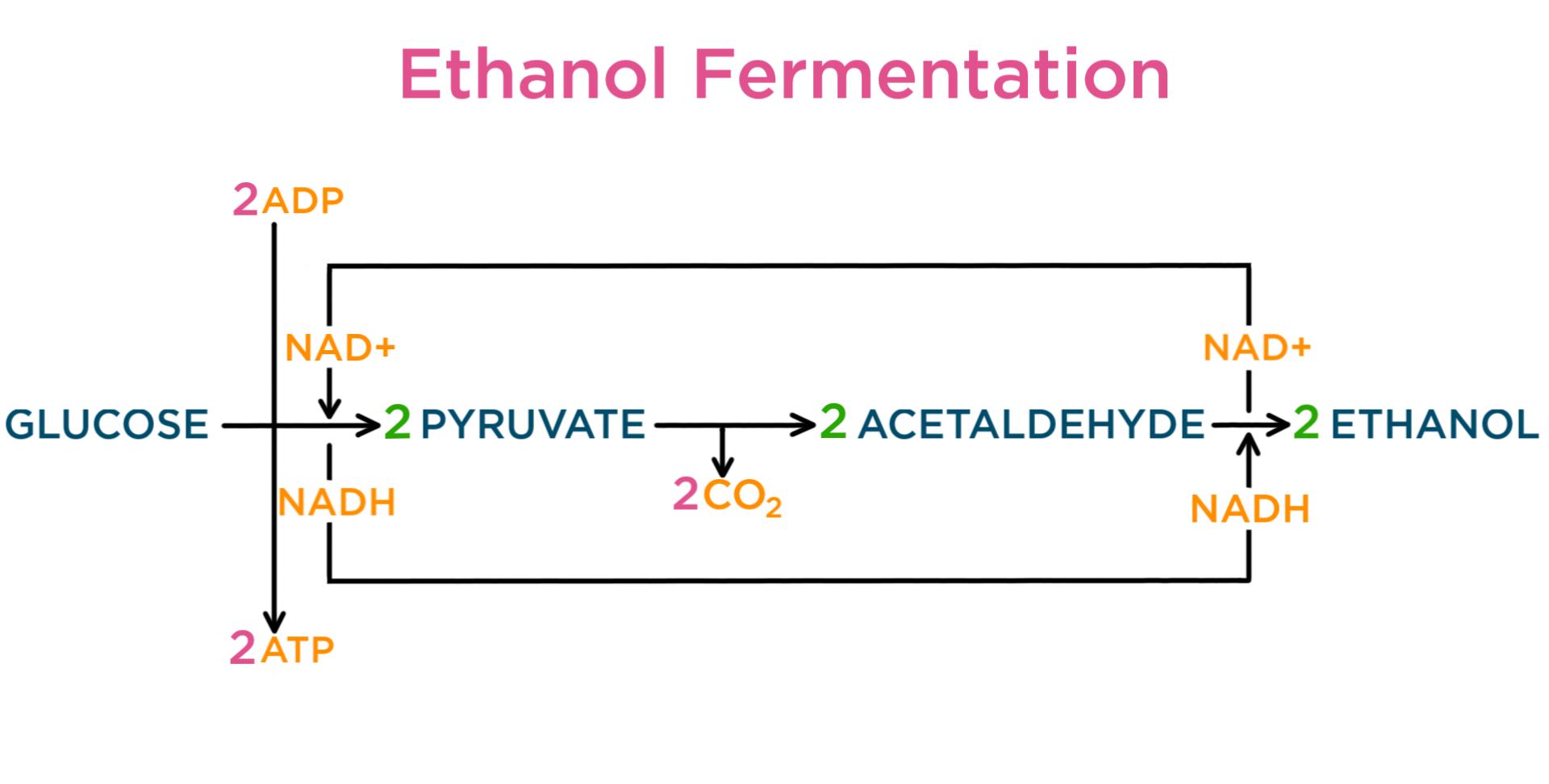Cellular Respiration Equation Definition

The process involves harvesting biochemical energy from organic molecules especially glucose is converted into ATP adenosine triphosphate.
Cellular respiration equation definition. C 6 H 12 O 6 6 O 2 6 CO 2 6 H 2 O 38ATP Glucose 6. Cellular respiration is a set of metabolic reactions and processes that take place in the cells of organisms to convert chemical energy from oxygen molecules or nutrients into adenosine triphosphate ATP and then release waste products. It is an exergonic reaction where high-energy glucose molecules are broken down into carbon dioxide and water.
Also known as the Embden-Meyerhof-Parnas pathway it is the first step of cellular respiration. Definition an organelle in eukaryotic cells that is the site of cellular respiration and generates most of the cells atp nucleus definition an organelle in a cell that holds the cells dna plural. Cellular respiration takes place in the living cells of organisms.
C 6 H 12 O 6 6 O 2 -- 6 CO 2 6 H 2 O ATP is the complete balanced chemical formula for cellular respiration. Glucose sugar Oxygen Carbon dioxide Water Energy as ATP Cellular respiration is the process of breaking sugar into a form that the cell can use as energy. It is also known as a catabolic reaction as a large molecule like a carbohydrate is broken down into smaller molecules.
The process takes place in four stages. Various sugars amino acids and fatty acids can be used as the substrate for cellular respiration. The cellular respiration equation is a part of metabolic pathway that breaks down complex carbohydrates.
It is a type of cellular respiration that takes place in the presence of oxygen to produce energy. This type of respiration is common in most of the plants and animals birds humans and other mammals. Cellular Respiration aerobic C6H12O6 6O2 6CO2 6H2O 32 ATP Photosynthesis 6CO2 6H2O C6H12O6 6O2 By looking at the two formulas it becomes evident that the products of one of the reactions are reactants of the other.
Cellular respiration is a set of biochemical reactions that takes place in most cells. Cellular respiration is a set of metabolic reactions and processes that take place in the cells of organisms to convert chemical energy from oxygen molecules or nutrients into adenosine triphosphate and then release waste products. The process of breakdown of primary metabolites like glucose protein fatty acids etc in the cell with the release of energy in the form of ATP is called cellular respiration.





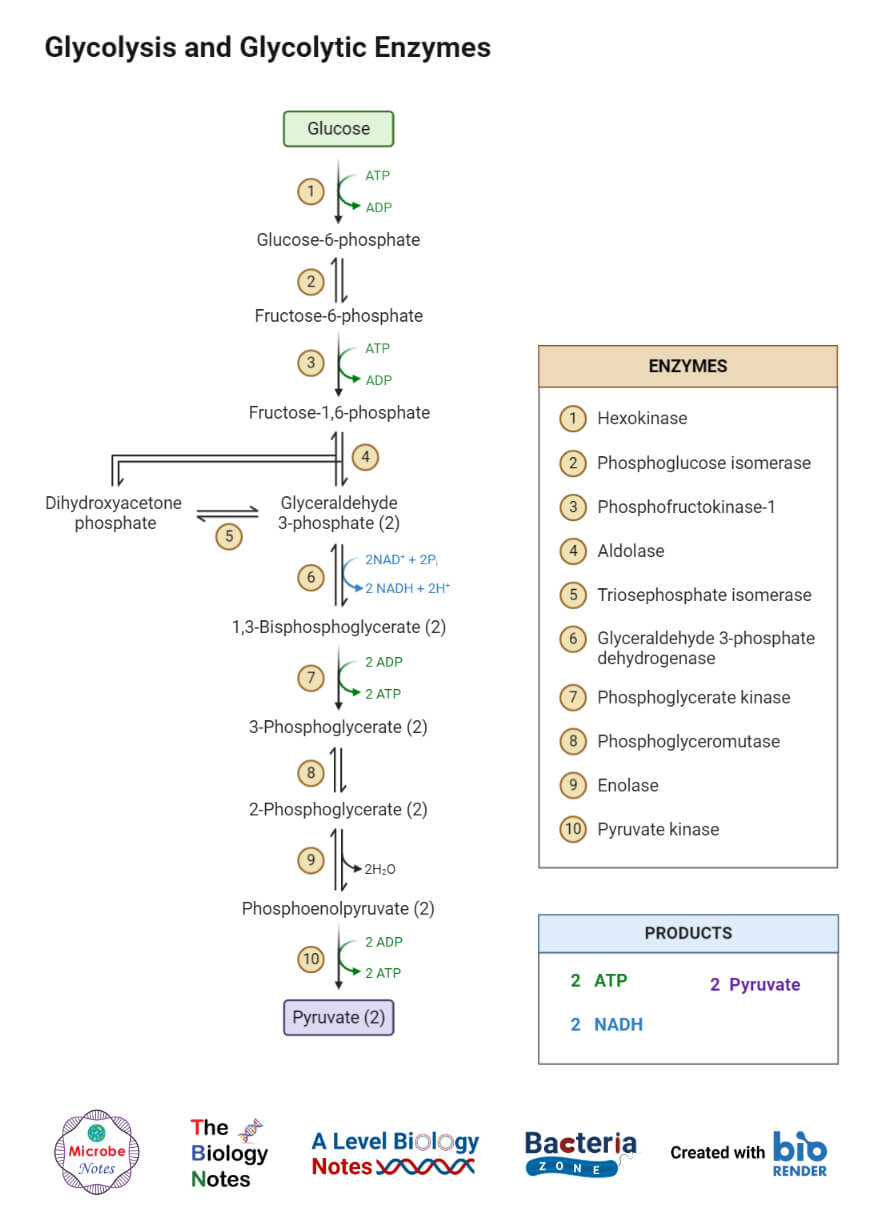
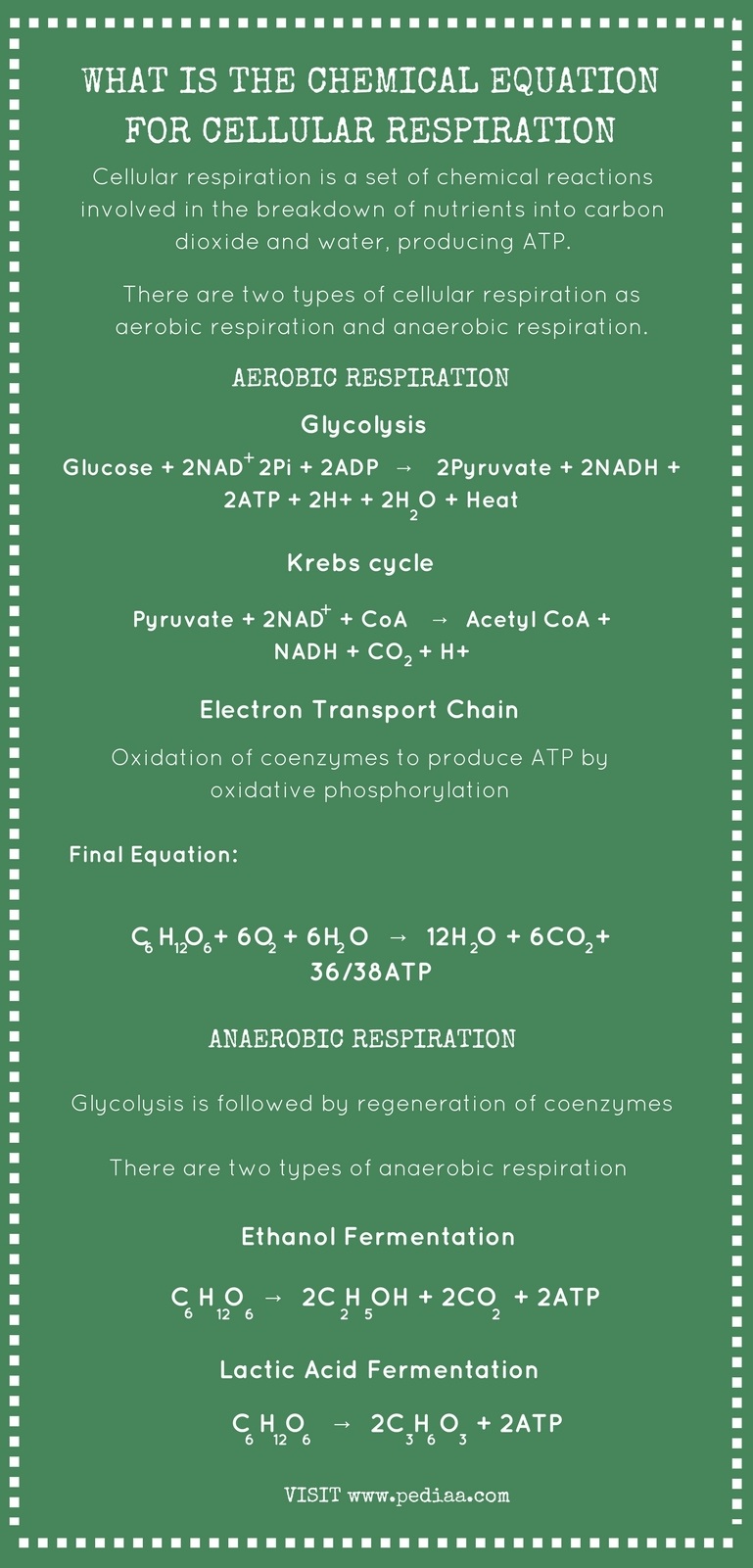
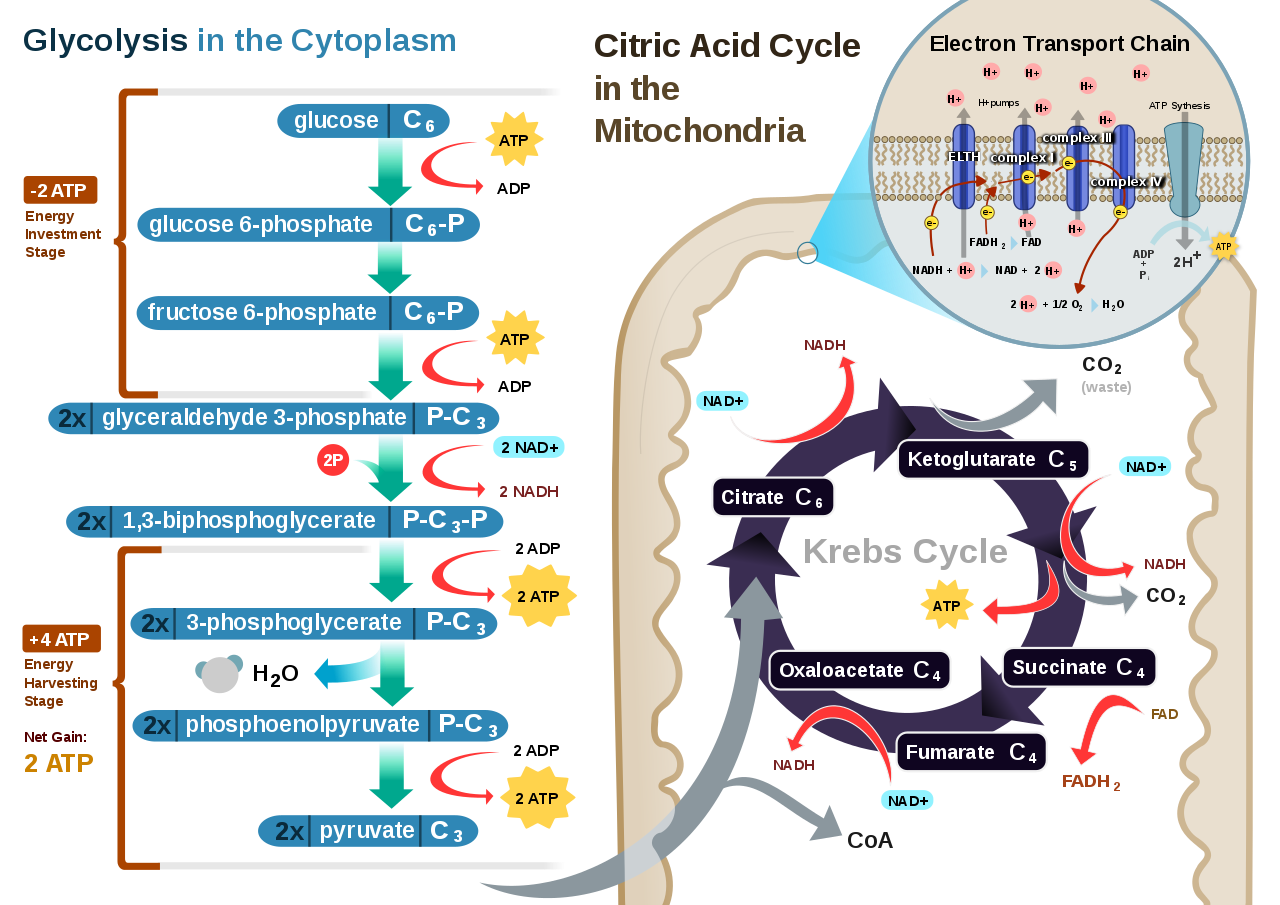
:max_bytes(150000):strip_icc()/cellular_respiration_3-58b9a5415f9b58af5c839e04.jpg)

